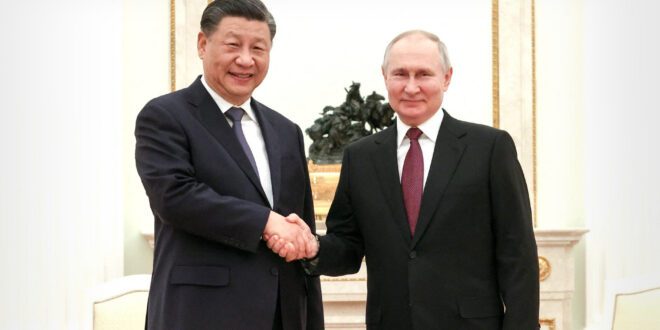China Promotes Its Own International Order as It Seeks to Challenge the US
China appears determined to establish itself as a global superpower and promote a new international order with Beijing at its center. Frustrated by what it sees as the US’ determination to thwart its rise, China has become more vocal about the possibility of conflict brewing unless America changes course. In recent weeks, it has reveled in a victory in the Middle East, and Chinese leader Xi Jinping has traveled to Moscow to meet with Russian President Vladimir Putin in a show of solidarity between the two nations.
Xi’s China visit to the Russian capital comes after the International Criminal Court issued an arrest warrant for Putin for war crimes in Ukraine. The Russian President welcomed China’s initiatives for a peaceful settlement of the Ukraine conflict, which is part of China’s efforts to project itself in the international community as a peacemaker.
As US-China relations seem to be on a downward spiral, Xi Jinping and his officials are resorting to increasingly stronger rhetoric. In a speech earlier this month, Xi accused the US of leading a campaign of “containment, encirclement and suppression” that has created “severe challenges” for China. His comment was considered the strongest and most direct anti-US stance from a Chinese leader in decades.
Despite President Joe Biden’s emphasis on the potential for cooperation between China and the US, the way US politicians talk about China, particularly on issues such as trade and Taiwan, creates the impression in Beijing that “everything is adversarial”. The Biden Administration seeks to view China as a strategic competitor but is not actively seeking conflict.
Therefore, Xi is in the midst of an unprecedented diplomatic offensive, offering a Chinese alternative to the US-led global order. The Chinese foreign policy emphasizes “mutual respect” and “noninterference”, contrasting with Western democracies’ versus autocracies’ framework. Beijing’s recent announcement of a deal brokered between Saudi Arabia and Iran has boosted Chinese legitimacy and prestige, enhancing Xi’s ambitions for China as a responsible great power.
In contrast to Xi’s frequent contacts with Putin, there has been no contact with Ukrainian President Volodymyr Zelenskyy, with whom he hasn’t spoken since before the Ukraine war began. China has tried to remain neutral in the conflict but refrains from condemning Russia’s aggression, citing international sanctions.
Xi’s visit to Moscow could have a significant impact on the balance of power between Russia and the West in the long term. From the Chinese perspective, this visit is viewed as an opportunity to strengthen the strategic partnership between Russia and China and push forward their vision of a new international order.
 Mind Uncharted Explore. Discover. Learn.
Mind Uncharted Explore. Discover. Learn.



